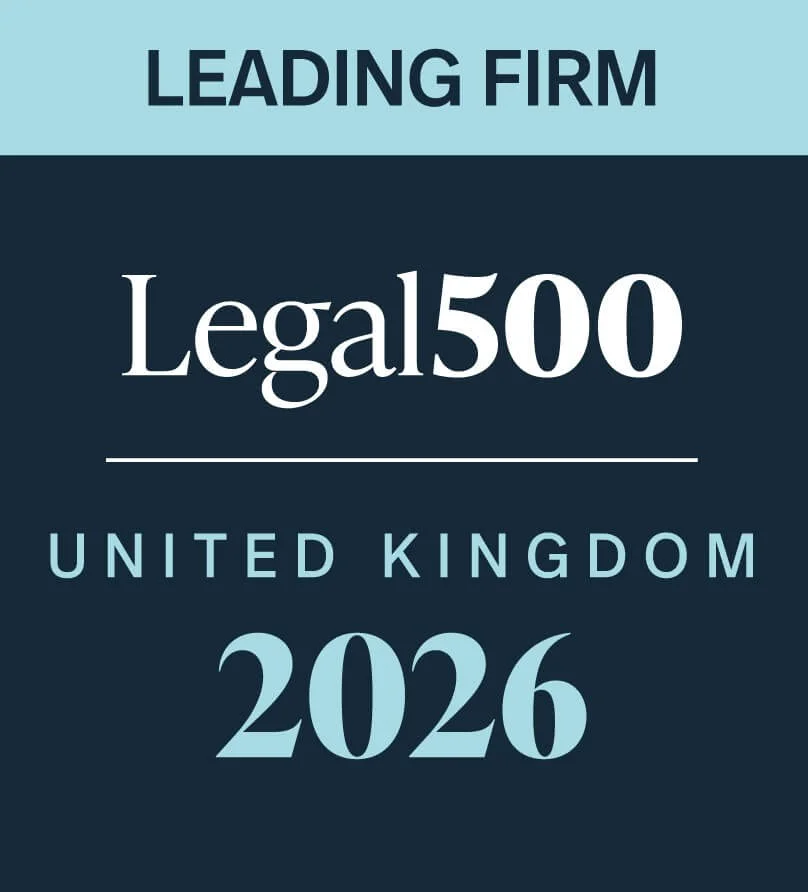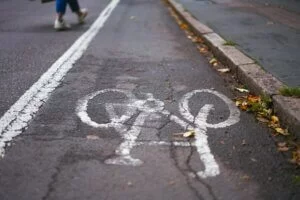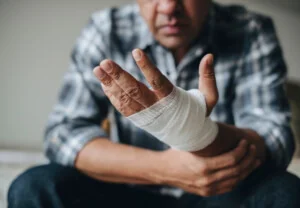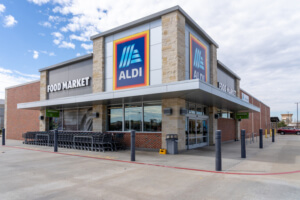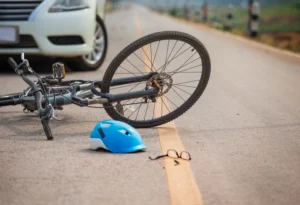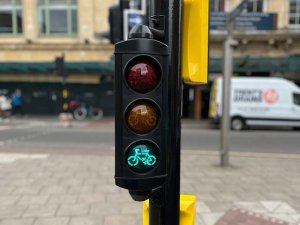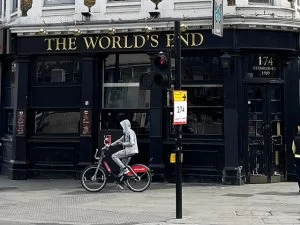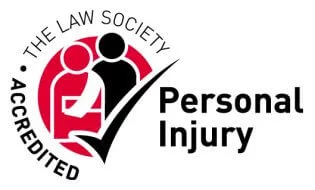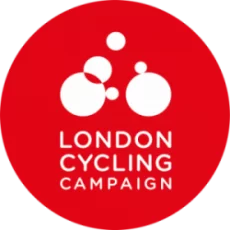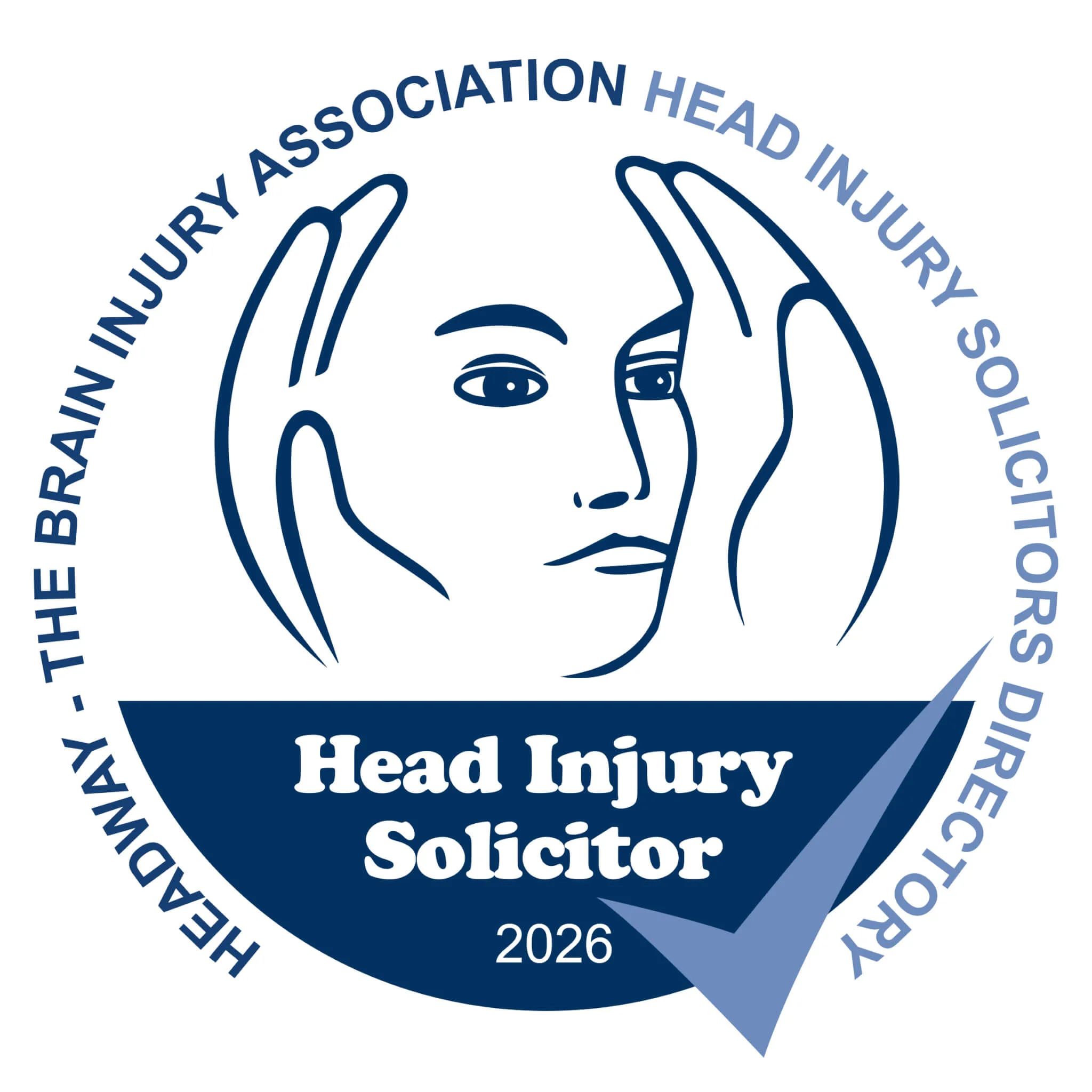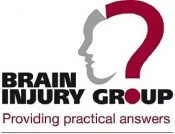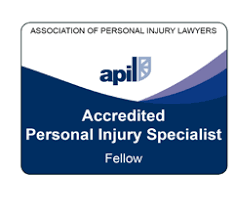Glossary of Personal Injury Terms
Understand Personal Injury Legal Terms
Legal jargon can feel overwhelming when you're dealing with the stress of an injury. Our personal injury glossary explains key legal terms in plain English, so you feel informed and in control of your claim.
“Osbornes fields a specialist personal injury team with standout expertise in catastrophic trauma, regularly securing multimillion-pound settlements in spinal, brain, and amputation cases. “
“Osbornes is a well-regarded personal injury practice well equipped to advise on high-value and high-profile claims.”
If you’re bringing a personal injury claim, you’re likely to come across unfamiliar legal terms, whether in letters from insurers, court documents, or conversations with your solicitor. It’s important to understand what these terms mean, so you can make informed decisions about your case.
At Osbornes Law, we believe in clear communication. That’s why we’ve created this glossary: to explain personal injury terminology in straightforward, accessible language. Whether you’re just starting your claim or already in the middle of the process, this resource will help you navigate the legal landscape with greater confidence.
If you have questions about anything you read, or need expert advice, our expert personal injury solicitors are here to help.
Jump to:
A | B | C | D | E | F | G | H | I | L | M | N | O | P | Q | R | S | T | U | V | W
A
-
Acknowledgement of Service
- A formal response filed by the defendant when a claim is issued in court. By submitting this, the defendant confirms receipt of the claim and notifies the court of their intention to defend it.
-
Accident Report
- A written document recording the details of an accident, including how it happened, when and where it took place, and who was involved. Accident reports are important evidence in personal injury claims, particularly for workplace or public accidents.
-
Adjournment
- When a hearing or trial is suspended or postponed to another date or time, either by request of the parties or by decision of the court.
-
Admission of liability
- A statement made by the defendant, either in writing or verbally, acknowledging responsibility for the accident or admitting they owed the claimant a duty of care. An admission can simplify and speed up the claims process.
-
Affidavit
- A written statement of fact made under oath or affirmation. In personal injury cases, an affidavit may set out the circumstances of an accident, the injuries suffered, and any associated losses.
-
After the Event (ATE) Insurance
- A type of legal expenses insurance taken out after an accident has occurred. ATE insurance covers certain legal costs if your case is unsuccessful, protecting you from being responsible for the other side’s costs.
-
Alternative Dispute Resolution (ADR)
- Methods of resolving disputes without going to trial, such as mediation or arbitration. ADR can often save time and costs compared to court proceedings and may help parties reach a more flexible resolution.
-
Allocation
- The process by which a court decides which “track” a case should follow based on its value and complexity. Personal injury cases are usually allocated to the small claims track, fast track, or multi-track. Each track has its own procedures and timetable. New personal injury rules came into effect on May 31, 2021, for low-value road traffic accident (RTA) claims.
-
Appeal
- The process of asking a higher court to review and change a decision made by a lower court, usually because it is believed the decision was wrong in law or procedure.
-
Application
- A formal request to the court asking a judge to make a decision before the final hearing. For example, your solicitor may apply for an interim payment or disclosure of documents.
-
Arbitration
- A form of alternative dispute resolution where an independent arbitrator hears the evidence and arguments from both sides and then makes a binding decision to resolve the dispute.
-
Association of British Insurers (ABI)
- A trade body representing the UK’s insurance industry. The ABI sets industry standards and practices, a
-
Association of Personal Injury Lawyers (APIL)
- A professional membership organisation for personal injury lawyers. APIL promotes access to justice and works to improve the rights of injured people.
B
-
Barrister
A specialist lawyer who provides legal opinions, drafts documents, and represents clients in court. In personal injury cases, a barrister may be instructed to present the case at trial or advise on complex legal issues.
Before the Event (BTE) Insurance
Legal expenses insurance purchased before an incident occurs, often as part of home or motor insurance. BTE policies may cover the cost of bringing a personal injury claim.
Bolam Test for Breach of Duty
A legal standard used in medical negligence cases to assess whether a medical professional acted negligently. Under the Bolam test, a doctor is not negligent if they acted in accordance with a responsible body of medical opinion, even if other doctors might disagree.
Breach of Duty
When a person or organisation fails to meet the standard of care required by law. To succeed in a personal injury claim, it must be shown that the defendant owed a duty of care and breached it, leading to injury.
Breach of Statutory Duty
Failure to comply with specific duties set out in legislation (statutes). For example, an employer failing to follow workplace safety regulations may amount to breach of statutory duty.
C
-
Case
- A legal dispute brought before a court for resolution. In personal injury law, this is the process by which a claimant seeks compensation from a defendant.
-
Causation
- The legal principle that the defendant’s actions must have directly caused the claimant’s injury or losses. Courts often apply the “but for” test: but for the defendant’s negligence, would the injury have occurred?
-
Chambers
- The offices where barristers are based. Solicitors usually instruct barristers from chambers when specialist advice or court advocacy is required.
-
Civil Matters
- Disputes between individuals or organisations that do not involve criminal law. Personal injury claims fall under civil law, as they deal with compensation for harm caused by negligence.
-
Civil Procedure Rules (CPR)
- The rules that govern how civil claims, including personal injury claims, are conducted in England and Wales. The CPR aims to ensure cases are dealt with fairly, efficiently, and at proportionate cost.
-
Claim Notification Form (CNF)
- The document filed at court to begin legal proceedings. It sets out the parties involved and the nature of the claim. A standardised form used to start certain types of personal injury claims (typically valued between £1,000 and £25,000). The CNF is submitted via the online claims portal.
-
Claimant
- The person bringing the personal injury claim.
-
Claimant Representative
- The professional acting on behalf of the claimant, usually a solicitor, who manages the claim and deals with the court and the defendant’s representatives.
-
Client
- A person who engages a solicitor to act on their behalf in a legal matter.
-
Compensation Recovery Unit (CRU)
- A government body that ensures state benefits paid as a result of an accident or injury are deducted from compensation awards and repaid to the Department for Work and Pensions.
-
Compensator
- The person or organisation responsible for paying compensation, usually an insurer acting on behalf of the defendant.
-
Conference
- A meeting involving the claimant, their solicitor, and sometimes a barrister or medical expert, to discuss the case and plan strategy. Conferences can be held in person or by phone.
-
Conditional Fee Agreement (CFA)
- Often referred to as a “No Win, No Fee” agreement. Under a CFA, the claimant usually does not have to pay their solicitor’s fees if the claim is unsuccessful. If the claim succeeds, the solicitor’s costs are recovered from the losing party, sometimes with a success fee deducted from compensation.
-
Contributory Negligence
- Where the claimant is partly responsible for their own injuries, for example by not wearing a seatbelt. In such cases, compensation is reduced in proportion to the claimant’s share of fault.
-
Correspondence
- Communication between the parties in a case, such as letters, emails, or telephone calls.
-
Counsel
- Another word for a barrister.
-
Counter Claim
- A claim brought by the defendant against the claimant, usually alleging that the claimant caused them harm or loss.
-
Counter Schedule
- The defendant’s response to the claimant’s schedule of damages, setting out which losses are agreed, disputed, or challenged.
-
County Court
- The court where most personal injury claims are heard. Claims are usually issued in the local county court nearest to the claimant.
-
Court of Protection
- A specialist court that makes decisions for people who cannot manage their own affairs due to lack of mental capacity.
-
Court Order
- A legally binding direction issued by a judge requiring a party to take certain steps, often by a specified deadline.
-
Costs
- The legal fees and expenses involved in pursuing or defending a claim. If successful, a claimant’s costs are usually paid by the defendant.
-
Coroner
- An independent judicial officer who investigates sudden, unexplained, or suspicious deaths. In fatal accident cases, a coroner’s findings can be important evidence.
- A government scheme that awards compensation to victims of violent crime, regardless of whether the perpetrator is convicted.
-
Crown Prosecution Service (CPS)
- The public body responsible for prosecuting criminal cases in England and Wales. While separate from civil claims, outcomes of CPS prosecutions may provide useful evidence in a personal injury claim.
D
-
Damages
- The compensation awarded to a claimant for injuries and losses suffered. Damages are divided into general damages (for pain, suffering, and loss of enjoyment of life) and special damages (for financial losses such as medical expenses, lost earnings, and travel costs).
-
Date of Knowledge
- The date when the claimant first became aware of their injury and its potential cause. This is important because the time limit for starting a personal injury claim often begins on the date of knowledge rather than the date of the accident.
-
Default Judgment
- A court decision made in favour of the claimant when the defendant fails to respond to a claim within the required time.
-
Defence
- The document in which the defendant responds to the claimant’s allegations, setting out their position. The defence may admit, deny, or partially accept liability.
-
Defendant
- The individual, company, or organisation against whom the personal injury claim is brought.
-
Defective Premises
- Buildings or property that are poorly built, maintained, or unsafe. If someone is injured because of defective premises, the landlord, builder, or property owner may be liable.
-
Diminution of Value
- The reduction in the market value of an asset, often following damage. For example, if a car is damaged in an accident, its value may fall even after repairs, and this loss may be claimed.
-
Directions
- A timetable set by the court for how a case will proceed, including deadlines for submitting evidence and documents.
-
Disbursement
- Payments made to third parties during a claim, such as court fees, medical expert reports, or accident investigation costs. These are separate from solicitors’ fees.
-
Disclosure
- The process by which each party shares relevant documents with the other side in order to ensure a fair trial.
-
Duty of Candour
- A legal obligation on healthcare providers to be open and honest with patients when something goes wrong that causes harm.
-
Duty of Care
- The legal responsibility to act in a way that avoids foreseeable harm to others. In personal injury law, proving the defendant owed the claimant a duty of care is a key part of establishing liability.
E
-
E-Claims Process (RTA Claims Process)
- An online system used for certain types of road traffic accident claims, designed to simplify and speed up the claims process.
-
Employer’s Liability (EL)
- The legal responsibility employers have for the safety of their employees at work. Employers can be held liable if an employee is injured as a result of workplace negligence.
-
Employers’ Liability Insurance
- A type of insurance that all UK employers are legally required to hold. It ensures employees injured at work can be compensated, with payouts made by the insurer rather than the employer directly.
-
Employers’ Liability Tracing Office (ELTO)
- A database that helps injured workers trace the insurer of a former employer, especially useful when companies no longer exist.
-
Evidence
- The information used to support a claim, such as medical records, accident reports, witness statements, or photographs.
-
Expert
- A professional with specialist knowledge, such as a medical expert, whose evidence may be used to support the claim.
-
Expert Witness
- An independent specialist, often a doctor or engineer, who provides an expert opinion on aspects of the case and may be called to give evidence in court.
F
-
Fast Track / Fast-Track Claim
- A court procedure used for straightforward personal injury claims typically valued between £10,000 and £25,000. Fast track cases usually have a strict timetable and are expected to be completed within a year.
-
Fee Remission
- An application to reduce or waive court fees, available to claimants on a low income or receiving certain benefits.
-
Fees
- The costs paid for legal services. Fees may be charged hourly, at a fixed rate, or under a “No Win, No Fee” agreement.
- The UK regulator of financial services, including insurance companies. Their oversight helps ensure fair treatment of consumers in personal injury claims.
-
Fundamental Dishonesty
- A finding that a claimant has been dishonest about their injuries or losses. If proven, the entire claim may be dismissed, and the claimant may have to pay legal costs.
-
Funding
- How a claim is paid for. Options include “No Win, No Fee” agreements, legal expenses insurance, or paying privately.
G
-
General Damages
- Compensation for the pain, suffering, and loss of enjoyment of life caused by an injury. General damages are assessed using medical evidence and guidelines published by the Judicial College.
-
Gratuitous Care
- Care provided to the injured person by family or friends without payment. The value of this unpaid care can be claimed as part of compensation.
H
-
Health and Safety Executive (HSE)
The government body responsible for enforcing workplace health and safety laws. Evidence of HSE investigations can support a personal injury claim involving workplace accidents.
Hearing
- A court session before a judge where evidence and arguments are presented. Hearings may take place in person, by phone, or online.
-
High Court
- One of the senior courts in England and Wales. Complex or high-value personal injury cases are sometimes heard here.
-
Hit and Run
- An accident in which a driver leaves the scene without providing their details. Compensation claims for hit-and-run incidents are usually made through the Motor Insurers’ Bureau (MIB).
I
-
Immediate Needs Assessment (INA)
- An assessment carried out in serious injury cases to identify an injured person’s urgent care, rehabilitation, and support needs. It helps secure interim payments to cover immediate costs while the claim continues.
-
Indemnity
- An agreement where one party promises to cover another’s losses or liabilities. In personal injury, an insurer may indemnify the defendant against the costs of a claim.
-
Infant Approval
- A legal requirement that court approval is obtained for any compensation settlement involving a child (under 18). This ensures the settlement is fair and properly managed.
-
Inquest
- A legal investigation into the cause of someone’s death, usually led by a coroner. Inquests often play a role in fatal accident claims.
-
Instructions
- Directions given by a client to their solicitor about how they wish their case to proceed. Solicitors also “instruct” barristers or experts to act in a case.
-
Interim Payment
- A payment made before the claim concludes, to cover immediate expenses such as medical treatment or loss of income. The amount is deducted from the final compensation award. Find out more in our guide to interim payments.
-
Interlocutory or Interim Proceedings
- Court hearings that take place while a case is ongoing, before the final trial. These may resolve specific issues such as disclosure or interim payments.
-
Issue of Proceedings
- The formal step of starting a court claim by lodging documents at court and paying the required fee.
J
-
Joint Settlement Meeting (JSM)
- A meeting between both sides in a personal injury case, often with their legal representatives, to try to reach a settlement before trial. JSMs can help avoid the cost and stress of a full court hearing.
-
Joint Statements
- Documents prepared by experts from both sides, setting out points they agree and disagree on. These are intended to narrow the issues in dispute and reduce court time.
-
Judgment / Judgement
- The decision made by a judge at the end of a hearing or trial. A judgment may confirm liability, award damages, or dismiss a claim.
-
Judicial College
- The organisation responsible for training judges in England and Wales. It also publishes the Judicial College Guidelines, used by courts to help assess levels of compensation for different injuries.
-
Judicial College Guidelines
- A set of reference figures used by judges, solicitors, and insurers to value general damages in personal injury claims.
L
-
Law Society
- The professional body for solicitors in England and Wales. It regulates and represents solicitors and promotes access to justice.
-
Legal Expenses Insurance (LEI)
- Insurance that covers the cost of bringing or defending legal claims, including personal injury. LEI may be bought as a standalone policy or included in car or home insurance.
-
Legal Help
- Part of the legal aid scheme that provides free or low-cost legal advice to those who meet certain financial criteria. It is rarely available for personal injury claims.
-
Legal Ombudsman
- An independent body that deals with complaints about solicitors and other legal service providers.
-
Letter of Claim
- The initial formal letter sent by the claimant’s solicitor to the defendant (or their insurer), setting out the details of the claim, including how the accident happened and what injuries were sustained.
-
Liability
- Legal responsibility for causing an accident or injury. Establishing liability is a crucial step in a personal injury claim.
-
Limitation Period
- The legal time limit for starting a claim. In most personal injury cases in England and Wales, this is three years from the date of the accident or from the date the claimant became aware of the injury and its cause. Special rules apply to children and those lacking mental capacity.
-
List of Documents
- A document prepared by each party in litigation setting out all relevant documents they hold that relate to the case, whether they support or undermine their position.
-
Litigation
- The process of pursuing a legal dispute through the courts.
-
Litigation Friend
- A person appointed to conduct proceedings on behalf of a claimant who cannot manage their own affairs, such as a child or someone lacking mental capacity.
-
Litigation in Person
- A claimant or defendant who represents themselves in court without a solicitor or barrister.
-
Loss of Amenity
- A type of non-financial damage compensating for the loss of enjoyment of life caused by an injury — for example, being unable to pursue a sport or hobby after an accident.
-
Lump Sum
- A one-off payment of compensation rather than payments made in instalments.
M
-
Mediator
An independent person who helps parties reach a settlement in mediation. Unlike an arbitrator, a mediator does not impose a decision but encourages the parties to find common ground.
Mediation
- A type of alternative dispute resolution where a neutral mediator assists the parties in reaching an agreement, avoiding the need for trial.
-
Medical Expert
- A doctor or specialist instructed to examine the claimant and prepare a report on their injuries and prognosis. Medical experts may be called to give evidence if their opinion is disputed.
-
Ministry of Justice (MOJ)
- The government department that oversees the justice system in England and Wales. It manages reforms affecting personal injury claims and court procedures.
-
Motor Insurers’ Bureau (MIB)
- An organisation that compensates victims of road accidents caused by uninsured or untraceable drivers, such as in hit-and-run cases.
-
Multi-Party Litigation
- Court proceedings involving three or more parties. This can occur when multiple defendants may be responsible for a claimant’s injuries.
-
Multi-Track / Multi-Track Claim
- The court process for complex or high-value claims, usually worth over £25,000. Multi-track cases have more flexible timetables and procedures than small claims or fast track cases.
N
-
Negligence
The failure to take reasonable care, resulting in harm to another person. To prove negligence, a claimant must show the defendant owed them a duty of care, breached that duty, and caused foreseeable harm.
Notice of Funding
- A document that notifies the court and other parties how a claim is being funded, for example under a No Win, No Fee agreement.
O
-
Occupational Disease
- An illness or condition contracted through workplace exposure, such as asbestos-related diseases, industrial deafness, or repetitive strain injuries.
-
Occupiers’ Liability
- The legal responsibility of a property owner or occupier to ensure their premises are reasonably safe for visitors.
-
Official Injury Claim Portal
- An online system introduced in 2021 for handling low-value road traffic accident claims. It allows claimants to pursue whiplash claims and other minor injury claims without needing a solicitor.
-
Overturned
- When a higher court changes or reverses the decision of a lower court following an appeal.
P
-
Pain, Suffering and Loss of Amenity (PSLA)
- Compensation awarded for the physical pain, emotional distress, and reduced quality of life caused by an injury. PSLA forms the main element of general damages.
- Part 36 Offer
- A formal offer to settle a claim made under the Civil Procedure Rules. Refusing a reasonable Part 36 offer can have cost consequences if the case proceeds to trial and the outcome is less favourable.
-
Particulars of Claim
- A detailed document setting out the claimant’s case, including the facts relied upon, the injuries suffered, and the legal basis of the claim.
-
Payment into Court
- A sum of money paid into court, often in claims involving children. The court holds the money until the child turns 18 or until the court authorises its release.
-
Personal Injury Protocol
- The rules governing how personal injury claims should be managed before formal court proceedings begin.
-
Personal Injury Trust (PIT)
- A legal arrangement that allows compensation to be held in trust, protecting it from affecting entitlement to means-tested state benefits.
-
Pleadings
- Formal written statements submitted in a case, setting out the facts and issues in dispute.
-
Personal Injury Claims Portal
- An online system for submitting and managing personal injury claims valued between £1,000 and £25,000.
-
Pre-Action Disclosure (PAD)
- A request to the court for relevant documents to be disclosed before a claim is formally issued.
-
Pre-Action Protocol
- Guidelines designed to encourage early exchange of information and settlement before court proceedings begin.
-
Precedent
- A legal decision made in a previous case that establishes a principle which may influence future cases.
-
Product Liability
- The responsibility of a manufacturer or supplier for injuries caused by defective products.
-
Proof of Evidence
- A written statement of what a witness intends to say in court.
-
Protected Beneficiaries
- Individuals, such as children or people lacking capacity, whose compensation must be safeguarded under court supervision.
-
Protected Party / Protected Parties
- Claimants who are unable to manage their own affairs due to age or mental capacity, requiring a litigation friend or court oversight.
-
Protective Proceedings
- Court proceedings issued close to the limitation deadline to preserve a claimant’s right to pursue a claim, even if the case is not fully ready.
-
Provisional Damages
- Compensation awarded with the option for the claimant to return to court in the future if their condition worsens or a further illness develops.
-
Public Liability
- The legal responsibility of businesses, organisations, or property owners for injuries suffered by members of the public on their premises.
Q
-
Quantum
The value of a personal injury claim, based on the severity of the injury and the financial losses suffered.
Queen’s Counsel (QC)
- A senior barrister recognised for excellence in advocacy. Now formally known as “King’s Counsel” (KC).
R
-
Rehabilitation
- Medical treatment, therapy, and support aimed at helping an injured person recover and regain independence. Rehabilitation may be funded by interim payments during a claim.
-
Remuneration
- Compensation or reward, usually financial, paid to someone for services provided or losses suffered.
- A formal written response by the claimant to the defendant’s defence, addressing specific allegations.
-
Road Traffic Accident (RTA)
- An accident involving vehicles, cyclists, motorcyclists, or pedestrians on the road.
-
RTA Claims Process
- An online process introduced in 2010 to handle road traffic accident claims valued between £1,000 and £10,000, aimed at speeding up settlement.
S
-
Schedule of Special Damages
- A document setting out the claimant’s financial losses and expenses, both past and future, arising from the accident.
-
Settlement
- The agreement between the parties to resolve a claim without proceeding to trial, usually involving a payment of compensation.
-
Small Claims / Small-Claims Track Claims
- A simplified court process for lower-value claims. In personal injury, the small claims limit is generally £1,000 for most claims and £5,000 for road accident claims.
- The body that regulates solicitors in England and Wales, ensuring standards of practice are upheld.
-
Split Liability Agreement
- An agreement where both parties accept a share of responsibility for the accident. The claimant’s compensation is reduced accordingly.
-
Statements of Case
- The main documents exchanged between parties that set out their positions, such as the particulars of claim, the defence, and replies.
-
Statement of Truth
- A declaration signed by a party or witness confirming that the contents of a legal document are true. Making a false statement can lead to contempt of court proceedings.
-
Statute-Barred
- A claim that cannot proceed because the limitation period has expired.
-
Stay of Proceedings
- A temporary halt to legal proceedings, which may later be lifted by the court.
-
Strict Liability
- Liability that applies even without proof of negligence. In personal injury, this applies in limited areas such as defective products or hazardous substances.
-
Structured Settlement
- A compensation award paid in instalments over time rather than as a lump sum.
-
Sue
- To bring a legal action against another party.
-
Summary Judgment
- A judgment made without a full trial when the court decides there is no real prospect of success for one side.
-
Supreme Court
- The highest court of appeal in the UK, hearing cases of the greatest public importance.
T
-
Third Party
- Someone other than the claimant or defendant who may be involved in a case. Often used to describe an insurer responsible for paying compensation.
-
Third-Party Capture
- When an insurer approaches an injured claimant directly to settle a case without legal representation. While quicker, such offers are often lower than the compensation available with legal advice.
-
Time Bar
- Another term for the limitation period. Once the time bar has passed, a claim can no longer be pursued.
-
Tort
- A civil wrong (such as negligence) that gives rise to a legal right to claim compensation.
-
Toxic Tort
- A type of claim involving injury caused by exposure to harmful chemicals or substances.
-
Transcript
- A written record of what was said in court, often used when considering an appeal.
-
Trial
- The final hearing of a case where the judge hears evidence and makes a decision.
U
-
Unrepresented Claimant
- A person who pursues a personal injury claim without legal representation.
-
Upheld
- When a higher court or authority confirms a decision made by a lower court.
V
-
Vicarious Liability
- The legal principle that holds employers responsible for the actions of their employees carried out in the course of employment. This is common in workplace accident claims.
W
-
Without Prejudice
- A phrase used in settlement negotiations to indicate that statements made cannot later be used as evidence in court. This encourages open discussions between the parties.
-
Witness
- A person who provides evidence in a case. This could include someone who saw the accident happen, or an expert providing specialist opinion.
-
Witness Statement
- A written account by a witness, signed with a statement of truth, setting out the evidence they would give in court.
-
Witness Summons
- A court order requiring a witness to attend court and give evidence.
-
Workplace Claims
- Personal injury claims arising from accidents or illnesses that occur in the workplace.
Essential reading
Client StoriesVIEW ALL
- 18.2.2026
Cyclist Awarded £30,000 After Being Struck by Turning Car
A cyclist has been awarded £30,000 in compensation after being struck by a car that turned across his path during a...
Read more - 26.11.2025
£35,000 Compensation for Cyclist Injured in London Cycle Lane
Cyclist receives compensation for crash in London cycle lane In this second case, Blanca Diego acted on behalf of our...
Read more - 25.11.2025
£800,000 Compensation for Injured Construction Worker
£800,000 compensation secured for injured construction worker after career-ending hand injury When a hardworking 35-year-old construction worker suffers a life-changing injury...
Read more - 5.11.2025
Case Study: £12 Million Compensation for Paralysed Motorcyclist
Summary: In October 2025, a motorcyclist received £12 million in compensation for life-changing injuries sustained in a 2020 accident that left him tetraplegic....
Read more - 27.10.2025
Forest Bike Accident Sparks Calls for Insurance Law...
Forest bike crash prompts calls for insurance reform A cyclist who was eight hours from death after colliding with a...
Read more - 21.10.2025
Industrial Bread Machine Crushes Woman’s Arm
Woman suffers life-changing workplace injury after arm is crushed in bread machine Nicola Hall is supporting a young woman in...
Read more - 22.9.2025
Young Mum Secures 7-Figure Payout After Workplace Accident
A young mum who was left with life-changing injuries after her scalp and ear were ripped off in a horrific...
Read more - 9.7.2025
Warehouse Worker Fights Aldi’s False Dishonesty Claims
Aldi’s worker suffers ‘mental torture’ after the supermarket giant falsely accuses him of lying In a shocking case that...
Read more - 19.6.2025
Osbornes Law Secures £200K for Injured Cyclist
Osbornes Law secures a six-figure settlement for a cyclist injured following a violent collision Andrew Middlehurst, a lawyer in the...
Read more - 9.4.2025
£11k Settlement for Cyclist Hit by a Truck
Settlement secured for a cyclist injured by a truck Megan Lambert recently secured a settlement for a member of the...
Read more - 6.2.2025
Bus Injury Compensation Claim: £7,800 Awarded to Injured Passenger
Client receives compensation for injury due to bus driver negligence Compensation was recently secured for a passenger on a bus...
Read more - 31.1.2025
Six-figure settlement for mum knocked over by a...
Six-figure settlement for young mum on school run knocked over by a motorcyclist Siobhan McIvor, Partner in the Personal Injury...
Read more - 17.1.2025
Student Makes Electrocution Compensation Claim
Student’s heart stopped after electrocution in London’s St James’ Park A university student had a heart attack and...
Read more - 19.12.2024
Seven-figure Settlement for Car Accident in Spain
Background to the Accident Isidoro Bonilla recently represent his client who sustained serious injuries following a car crash in Spain....
Read more - 19.12.2024
Claim for Car Accident in Croatia
Background to the accident Isidoro Bonilla recently advised his client who sustained serious injuries in a car accident. His client,...
Read more - 26.11.2024
Cyclist Hit by Van Driver Claims Compensation
Cyclist Injured in Van Collision Receives Settlement Phoebe Walliss, a solicitor at Osbornes Law, recently secured a settlement for a...
Read more - 22.10.2024
£75,000 Settlement for Head Injury at College
Accident During a College Class Eloise Mears, Personal Injury Solicitor at Osbornes Law, represented a student who sustained a head...
Read more - 22.10.2024
£150k for Pedestrian Knocked Over By Learner Driver
Accident Involving a Learner Driver Eloise Mears, Solicitor at Osbornes Law, acted for a successful young professional who was severely...
Read more - 22.10.2024
Client Case Study: Slip & Fall at Church
£60k Settlement for Slip & Fall at a Church Premises Eloise Mears, Solicitor specialising in slip & fall claims at...
Read more - 22.10.2024
Cyclist Injury Claim Successfully Settled for £75,000
Cyclist hit by van driver Eloise Mears, a solicitor at Osbornes Law, recently secured a £75,000 settlement for a cyclist who...
Read more - 23.9.2024
High Court Ruling: English Law in Multi-Vehicle Collision
High Court victory Siobhan McIvor, Partner in the Personal Injury Department, has succeeded in obtaining judgment for her seriously injured...
Read more - 6.8.2024
Case Study: £25,000 Settlement for an E-Scooter Accident Claim
Pedestrian hit by an e-scooter rider claims £25,000 This case study highlights how Osbornes Law secured a £25,000 settlement for a client...
Read more - 25.7.2024
Cycling Claim Examples: Real Client Cases
Summary: Explore examples of real-life cycling accident cases handled by Osbornes specialist cycling team including the payouts clients have received...
Read more - 25.7.2024
Claim By Cyclist Hit By Car at Junction
Payout for Cyclist Who Was Knocked Off Her Bicycle Cycling accident lawyer, Phoebe Walliss recently settled a claim for a...
Read more
Rob Aylott is adept at handling sensitive and complex catastrophic injury claims.
The team offers specialist expertise in cycling-related injury claims and regularly acts for foreign nationals.
It has considerable experience in cases arising from motor accidents and accidents at work.
Osbornes has a well-regarded personal injury practice well equipped to advise on high-value and high-profile claims, including fatalities and severe injuries regarding the brain and spinal cord.
Osbornes have expert leadership. They are very client-centred and provide great communication.
They have got a team of strong partners who are experienced and capable, and their lawyers have a can-do attitude and don't seem to be fazed by anything.
They grasp complex and sophisticated matters quickly.
From partners to associates, the lawyers are committed to ensuring a successful outcome for every client.
They have intelligent, experienced lawyers who advise their clients very carefully.
Osbornes deal with their clients in a very professional manner, attempting to get the best results at all times.
Sam Collard, head of cycling, specialises in severe injury and fatal accident cases.
Rob Aylott leads on amputation disputes, often working with major trauma units.
Department head Sophie Davies handles severe injury and fatality matters with a focus on early rehabilitation.
Ben Posford, head of catastrophic injury, is well-known for spinal cord and cauda equina claims, including high-profile fatality work.
Osbornes fields a specialist personal injury team with standout expertise in catastrophic trauma, regularly securing multimillion-pound settlements in spinal, brain, and amputation cases.
Excellent firm with a good insight into and prosecution of catastrophic PI work handled by an experienced team.
Without doubt, Osbornes are the firm to watch in London.
This team is growing in profile all the time. The firm now has many of London's leading personal injury solicitors.
The file handlers I have worked with are experienced and expert personal injury practitioners who can be relied upon to achieve excellent outcomes for the client.
They are very supportive of their clients and are willing to take on difficult cases.
This team is very well organised and approach their cases with great attention to detail.
They have particular expertise in dealing with Eastern European clients who speak little or no English as they have native speakers within their team.
Osbornes is a excellent firm for high value and complex personal injury work.
Osbornes Law is a really strong team with a lot of depth.
Osbornes work professionally as a team, responding diligently to emails or telephone calls.
Osbornes fields a solid team of high quality practitioners, active in a range of catastrophic injury claims.
Osbornes clients are individuals whose cases are treated with the focus required when dealing with life changing injuries.
Fielding a ‘first class, very well resourced’ team of litigators, the personal injury department at Osbornes is rated for its diverse workload of complex, high-value injury claims, representing both domestic and international claimants.
Osbornes is an excellent firm, made up of lawyers with flair and pedigree.
Osbornes lawyers are smart, well trained, experienced and well managed.
Osbornes personal injury practice is first class; very well resourced and second to none.
Osbornes is becoming one of the top players in the claimant personal injury market. A large team with a great number of very high quality solicitors.
Osbornes is a highly proficient serious injury firm. They bring all the benefits of the biggest firms in the market but none of the downsides.
Osbornes prepares cases well; the whole team is good and lawyers there know their stuff.
They deal with people compassionately and take on the right amount of detail. The firm has some really brilliant key solicitors.
The personal injury team is responsive and its level of service towards clients and other professionals is exceptional and high quality
The team offers specialist expertise in cycling-related injury claims and regularly acts for foreign nationals.
It has considerable experience in cases arising from motor accidents and accidents at work
Osbornes is a well-regarded personal injury practice well equipped to advise on high-value and high-profile claims.
Their team includes bright, hard-working solicitors dedicated to achieving successful outcomes for their clients from partner level to paralegal. Their client care is exceptional.
They are a team who are highly respected in the PI sector.
This is an excellent PI team doing a broad range of PI work.
Osbornes’ ‘highly respected‘ personal injury team is experienced in a range of complex, high-value claims, with notable strength in acting for European clients for whom English is not a first language.
Osbornes’ ‘highly respected‘ personal injury team is experienced in a range of complex, high-value claims
Osbornes’ ‘highly respected‘ personal injury team is experienced in a range of complex, high-value claims.
"Osbornes always provides work of excellent quality and the advice is sound."
"The firm has the ability to handle the most sophisticated and complex matters."
"Osbornes is always client-focused and works tirelessly to obtain the best outcomes."
'The team deals with multi-million pound, often multifaceted claims, involving such factors as severe brain, psychiatric, gynaecological and spinal injury, major trauma, amputation and fatality.'
"They are a boutique firm with highly experienced partners who are well-respected in the industry."
"The team at Osbornes deals with catastrophic injury claims with the same professionalism as the largest firms, but provides a much more client-focused experience."
"A really first-rate team, well capable of dealing with the most serious and complex injuries."
"This team has carved out an exceptional reputation in catastrophic injury work."
"Osbornes has impressed me with their personal touch for clients whilst offering a first-class handling of catastrophic injury claims. The partners all have vast experience and are highly respected in their field."
"This is a really excellent personal injury team that can be regarded as one of the major players in the London claimant personal injury market."
"Osbornes have managed to recruit a team of outstanding catastrophic injury lawyers who are at the top of the game."
"They punch well above their weight. The quality of service they provide equals that of any of the larger top-name firms in this area"
Ben Posford is fiercely bright, with an unrivalled passion for his clients’ cases. His encyclopaedic knowledge of all things PI is second to none. His foresight and commercial nous have propelled Osbornes into the highest echelons of the market where they rightly belong.
The firm has an excellent and innovative line in cases involving non-English speaking claimants, managed by recruiting paralegals with multi-language skills – an impressive route for expansion of the caseload.
Great expanding team with expertise and respect in the sector. Led by a commercially savvy and business minded team.
A really excellent group of PI solicitors, notable for their individual quality.’
A niche firm that punches well above its weight in the catastrophic injury sector, borne out by the quality of work they obtain.
This combination of experience and diligence reaps massive rewards for clients, Osbornes being well known in the industry as a fantastic firm.
The Osbornes personal injury team now comprises some of the most technically adept and hard hitting lawyers in the business.
Ben Posford is one of London’s best catastrophic injury lawyers, in my view. He is a real brain injury specialist.
Excellent coverage of personal injury, and traumatic brain injury. There is a real specialism in claimants who do not speak English as a first language.
The group is noted for its expertise in matters relating to cycling injuries, and is the official legal partner of the London Cycling Campaign charity.
To complement its strong reputation for high-value and complex personal injury work, the firm continues to develop its 'excellent and innovative line in cases involving non-English speaking claimants'
"Osbornes comprises some of the most technically adept and hard hitting lawyers in the business"
"A small but high-powered team, dealing with cases of significant value and complexity."
"An excellent firm which achieves fantastic outcomes for clients."
"Osbornes Law have captured the magic of keeping the customer service levels of a smaller firm whilst having all the expertise and power of the biggest firms."
"A superb boutique catastrophic injury firm."
"Really good at dealing with people who have suffered a serious injury."
"Affable and charming with very good client-handling skills."
"superb firm with consummate professionals and a human touch."
Osbornes now has a team of highly experienced personal injury lawyers; particularly strong on high-value quantum cases, workplace accidents and claims involving foreign workers injured in the UK.
The team provides fantastic strength-in-depth for personal injury claims. It is also particularly well placed to service clients from Eastern Europe with specialist native language speakers. From the smallest case to a multimillion-pound spinal injury case, Osbornes has the right staff to manage every claim.
Ben Posford remains pre-eminent in his field with expert understanding of litigating cases of the upmost severity. His experience builds on Stuart Kightley’s running of the firm with recent partner additions of Rob Aylott making a fantastic addition.
A firm going from strength-to strength-which retains its client care whilst being able to offer a full personal injury service.
Beneath Ben Posford’s calm and reassuring presence, which clients love, lies a formidable tactical and legal brain. His experience tells and he gets it right at every stage of the process from arranging the best possible rehabilitation, to ensuring, so far as possible, a polite relationship with those acting for the defendant in order to ensure best and early resolution of the claim.
"Clients say he is very impressive, in terms of both his experience and his management of the personal injury team."
"They have an expanding profile in personal injury and clinical negligence and offer a superb, broad service in accidents abroad, enabled by their recruitment of bilingual legal executives who can guide non-English speakers through complex litigation."
"Solid personal injury practice well equipped to advise on high-value and high-profile claims arising from fatalities and severe head and spinal injuries."
"Offers specialist expertise in cycling-related injury claims."
"Offers specialist expertise in cauda equina syndrome cases."
"An exceptional outfit. They take on difficult cases, fight hard and win."
"Stuart Kightley is an incredibly empathetic solicitor who is very knowledgeable about traumatic brain injury."
"They are an outstanding firm to work with. They are consistently impressive in their work."
"Osbornes often handles claims valued at over £1m, particularly relating to severe brain and spinal cord injuries and niche areas such as cauda equina syndrome and cycling accidents."
"The hard-working, thorough and committed Robert Aylott, who brings significant heavyweight personal injury experience."
"Key team members include the energetic and personable Stuart Kightley who is head of the personal injury department."
Thank you for the hard work and patience and for being so patient with my constant questions.
"I have found Osbornes to be thorough, clear and understanding from the initial call. They do exactly what they say they will and with passion! I would recommend them to anyone".
Very good efficient service. Would not hesitate to use again.
I will use Osbornes for any future needs.
I don't think I could have asked for anything more. One of the best dealings I've had with the legal profession.
Sam was excellent and very professional in dealing with our claim.
Head of the personal injury department, Stuart Kightley is a first-rate practitioner, wholly focused on getting his client the best outcome in a pragmatic, sensible and consensual manner.
As a real specialist in spinal cord injuries, Ben Posford is always looking at new angles on how to maximise his cases.
Ben Posford is one of the best catastrophic injury lawyers around.
They provide exceptional service, great knowledge and understanding of the law, excellent client care and tactical nous
Stuart Kightley is praised for his expertise in catastrophic and fatal claims. Clients say he is very impressive, in terms of both his experience and his management of the personal injury team.
My claim was dealt with efficiently and professionally. Communication was excellent, and timely. Shrewd and sound advice was provided at every stage of the claim from beginning through to completion. On the basis of my personal experience I would strongly recommend Osbornes.
I just wish to thank you for your hard work and successful outcome. I am pleased with the result and would recommend you and your firm to anyone in the future.
Ben Posford … is ‘tactically astute’ and ‘one of the best personal injury solicitors around’.
Ben Posford ‘knows how to maximise the value of the claim for his clients’.

